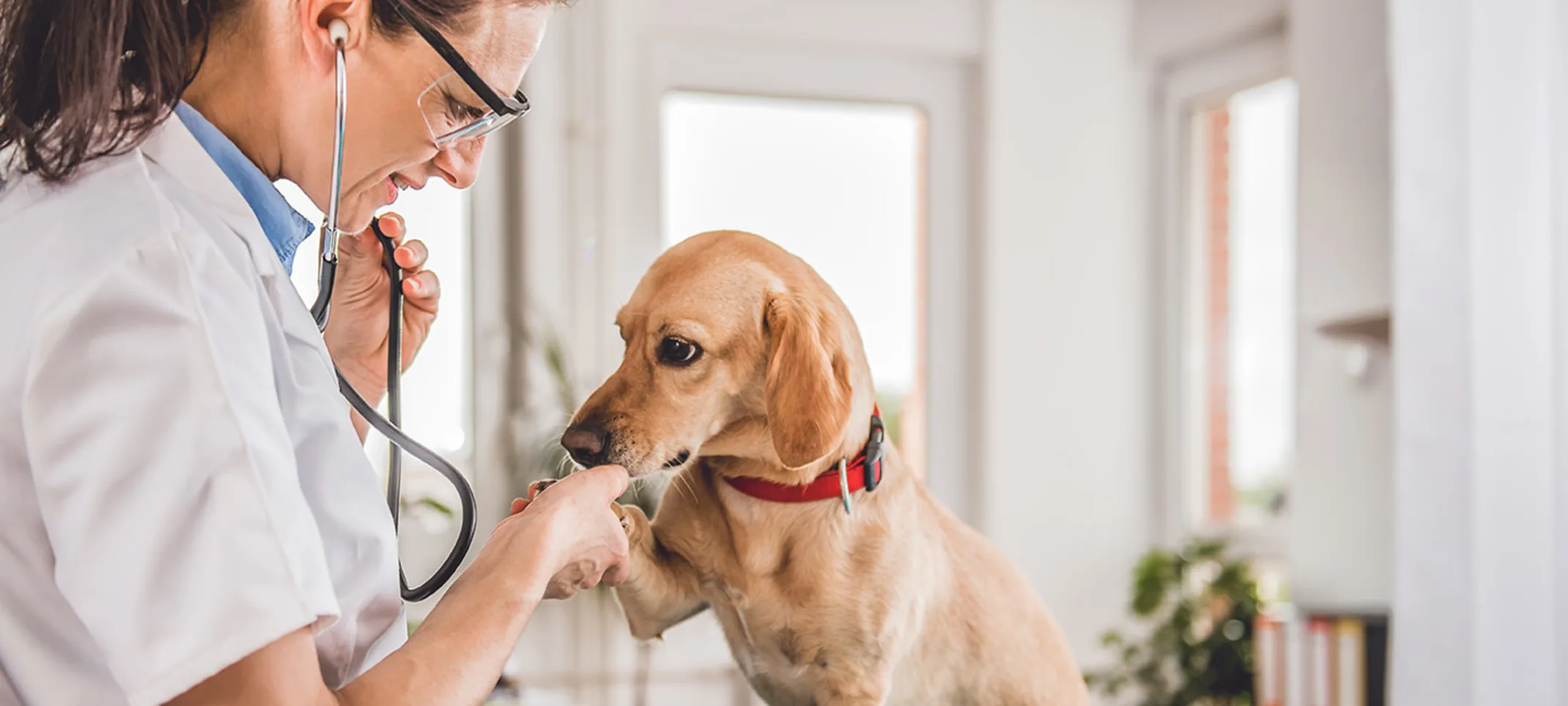Emergency Animal Hospital of Collin County
Consumption of Toxins/Poisoning
In general, any products that are harmful to people are also toxic to animals.

Poisoning or Toxin Exposure
If your pet’s skin or eyes are exposed to a toxic product, check the product label for instruction for people exposed to the product. If the label instructs you to wash your hands with soap and water, if you’re exposed, then wash your pet’s skin with soap and water.
If you know your pet has consumed something harmful or is having seizures, losing consciousness, or has difficulty breathing, contact our emergency animal hospital right away.
Common Causes of Toxic Poisoning
Our emergency veterinarians have experience with many toxic ingestion cases in cats, dogs, and other pets. Some of the most common causes of accidental poisonous ingestion in pets include:
Insecticides & Pesticides: Roach and rodent baits are tempting for cats to play with, and for pups to lick, and pests that are poisoned can poison your pet if ingested. Insecticides such as snail eradicators that contain organophosphates are particularly dangerous when consumed.
Antifreeze: One of the top causes of allergic and toxic reactions in pets is antifreeze, likely because it’s present in most homes, and it has a sweet taste that appeals to dogs in particular.
Household Cleansers & Chemicals: Things ranging from laundry supplies and hygiene implements to that seemingly harmless basket of potpourri can post a toxic threat if consumed.
Foods: Some lesser quality store-bought foods contain byproducts that some pets have allergic reactions to, and many dogs and cats don’t process or digest human foods well. While grapes, chocolate, and onions are well-known no-no’s, but other toxic foods include xylitol (sugar-free sweetener), coffee grounds, rhubarb, alcohol, and raw dough.
Toxic House Plants: Tulips, sago palms, hyacinths, poinsettias, amaryllis, and several types of lilies are just a few house plants known to be toxic to pets. Do your gardening research before planting!
Human Medications: Ibuprofen and acetaminophen have caused numerous pet fatalities, and no type of human medicines should be given to pets. Consult our emergency veterinarians in Plano right away if your pet accessed your stash of human drugs.
Toxic Mushrooms: If your pet spends time outdoors, there’s a chance they may encounter wild mushrooms and even plants that are toxic and/or psychotropic, and they need to get emergency care immediately.
Symptoms of Pet Poisoning
You may not always see your pet ingest a toxin. However, pets may display a number of symptoms indicative of poisoning.
Some common symptoms of pet poisoning include:
Excessive drooling
Vomiting
Diarrhea
Lethargy
Lack of appetite
Excessive thirst
Increased or decreased urination
Pet poisoning can cause internal bleeding, liver failure, kidney failure, and other severe and often fatal symptoms. If you suspect your pet has ingested toxins, do not hesitate to contact our emergency veterinarians immediately.
Prompt, Accurate Treatment
If you suspect that your dog or cat has been poisoned, don’t panic – instead, contact us immediately for advice and be ready to rush your pet to our hospital for emergency care.
If possible, try to find whatever your pet has consumed so you can bring a sample of it to us for evaluation. Don’t try to make your pet vomit; a corrosive substance will do even more harm coming back up. As soon as your pet arrives, our emergency veterinarian will run fast but accurate diagnostics to determine the proper course of lifesaving action.
In some cases, emetic drugs to make your pet vomit may be the right answer; in others, we may use activated charcoal to neutralize the substance. Rest assured, we will do everything in our power to save your best friend.
